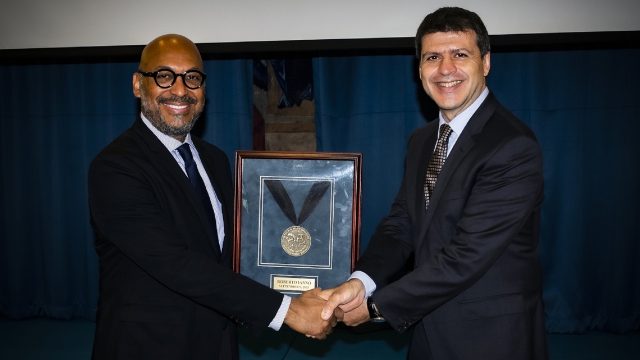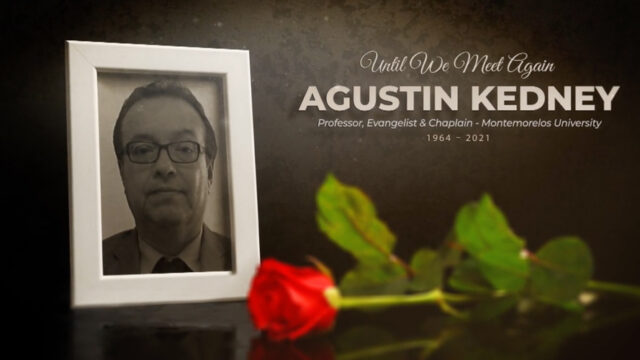By Mark A. Finley I was recently talking to a young man about the importance of making right decisions. I was fascinated with […]
By Mark A. Finley
I was recently talking to a young man about the importance of making right decisions. I was fascinated with his response. He confidently said, “I know right from wrong; my conscience always tells me.”
In a society of ever-changing moral standards, we are often told that the way to get through this morass of confusion is to rely on the compass of our individual conscience. Is our conscience always reliable? Can we trust our conscience in all circumstances? Can our conscience ever lead us in the wrong direction? In this month’s Bible study we will discover the value of a “sanctified” conscience, and the danger of trusting in a conscience that is not under the guidance of the Holy Spirit.
How does the Bible describe human nature? What is the state of our condition before God? Read Jeremiah 17:9, 10 and Isaiah 53:6.
God created Adam and Eve in a state of perfection. Once they sinned, their natures changed. Each one of us is born with a fallen nature, making it easier to do wrong than to do right.
What expressions did the apostle Paul use to describe the state of mind of those who have not surrendered their lives to Christ? Compare Romans 8:7 with Ephesians 2:1-3.
Since our natures are fallen, and without Christ we have “carnal minds,” is a conscience unaided by the Holy Spirit a safe guide? Read and summarize the following texts: Hebrews 3:13; 1 Timothy 4:2; Proverbs 14:12.
Unaided by the Holy Spirit, we are strongly influenced by our own desires, the environment around us, and peer pressure.
Since our natures are fallen, and we have at times hardened our hearts through poor choices, has God left us alone to determine what is right and wrong? Look at the hopeful message of Ecclesiastes 3:11 and John 1:9.
God meets us in our fallen condition. From the day we were born His Holy Spirit began to gently guide us to understand His truth and His plan for our lives. If we positively respond to the promptings of His Spirit, we will have a clear sense of His guidance.
What role does the Holy Spirit play in sharpening our conscience? Read John 14:16-18; 16:7, 13-15.
The Holy Spirit, the third person of the Godhead, is Jesus’ divinely appointed representative to guide us into all truth. If we desire to do God’s will and are committed to pleasing Him in all our actions, the Holy Spirit will guide us in our decision-making process.
How does the Bible affect our consciences in the process of making right decisions? Compare Psalm 119:105, 130, 133, 140, 160.
The Bible is a “lamp to [our] feet.” It is a “light to [our] path.” The “entrance of [His] words gives light.” Our “steps” are directed by God’s Word. We cannot trust an unenlightened conscience, but we can trust the guidance of the Holy Spirit through a conscience that has been informed, directed, and educated by God’s Word. The Scriptures are the basis for all right decisions. Any inclinations, desires, or tendencies that are not in harmony with the Word of God are not the product of a “sanctified conscience.”
What actions can we take to ensure that we will always have an enlightened conscience guided by the Holy Spirit and informed by the Word of God? Read John 12:35, 36.
As we faithfully walk in the light that God gives us and make positive choices in harmony with His will, His Holy Spirit will guide us in making right decisions. We can have absolute confidence that God will never disappoint us. He will never leave us to the folly of our own ways if we desire to serve Him. He wants to guide us into making right decisions and prompt us through our consciences. The question is always and only this: “Are we willing to surrender our way to His and let Him guide us?”









